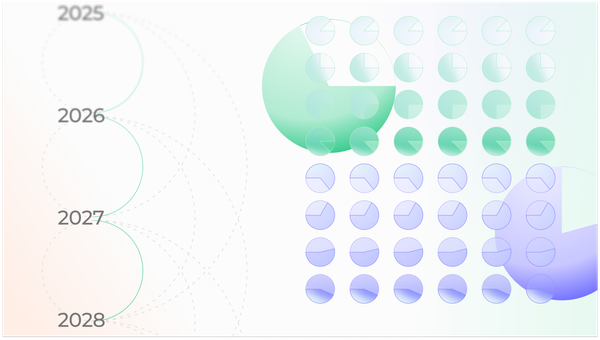58% of employees surveyed are confident in their job, despite AI advancements, but concerns do loom.
With the growing integration of AI into daily work routines, its precise role within the workplace can be ambiguous, leading to concerns among employees, political leaders, and the general public. According to a McKinsey study titled "Generative AI and the Future of Work in America," automation facilitated by generative AI could potentially replace tasks that account for as much as 30 percent of the total working hours in the US by 2030.
Given this context, in the latest round of the Pulse IQ research we asked Generative AI users, “Do you think that AI will eliminate your job?” 58% expressed confidence that AI would “probably never” replace their jobs.
We asked them why, and the responses reveal several recurring themes and perspectives. Users feel that AI cannot replace human creativity and innovation. Participants found that the AI lacks the emotional understanding that is required in roles like customer service, teaching, etc. Additionally, roles that require specialized knowledge and experience are hard to replicate with AI.
“AI is also not as good as humans at understanding and responding to emotions. This is important in many jobs, such as customer service or teaching. Humans will still be needed in these roles to provide the emotional support that AI cannot.”
—Bernie, 28, Bing
“You cannot replace creativity entirely with AI and years of in-depth industry experience. AI can only give generic answers.”
—Hau Xiang, 28, GPT-3.5
“I think AI will continue to have a major impact on the workplace, but I don't think it will completely eliminate my jobs. AI tools are great at processing large amounts of data and making predictions based on that data, but they still lack some of the key human skills like empathy, creativity, and intuition. These are skills that are still essential in my job and I don't think AI will be able to replace them anytime soon.”
—Jakes, 38, Bard
Responses also indicate that humans are needed for legal and ethical matters, as they require attention to detail and relevant considerations. Those who work in jobs that require hands-on tasks, such as construction or healthcare, express higher confidence in their job security.
“At this juncture, I think it is imperative to have legal professionals available to help with matters that require great attention to detail which could lead to litigation if done incorrectly. AI will be a great assistant, but I don't see an AI Lawyer being the norm.”
—William, 50, Bard
“I'm in construction. AI can't hammer nails… yet. I am not overly concerned.”
—Nicholas, 42, Bard
Among different age groups, both Generation X and Millennials express more worry about how AI could impact their jobs in the next 1 to 5 years. People in fields like software engineering and data analysis feel that their jobs are most at risk of being changed by AI. Most perceive AI’s ability to do things quicker and ultimately cheaper for their employers as the key reason why they could be vulnerable.
“AI has enough resources to write up almost any article with proper input. It may get to a point where it will be cheaper to employ AI over humans.”
—Chris, 34, Bing
“I think it will be able to eliminate my job and many others because as technology gets better and better AI performs better, faster, and more accurately then how a human could do the job plus it's much cheaper.”
—Larry, 39, GPT-3.5
“AI tools can be programmed to work when humans are not around.”
—Teddy, 41, GPT-4
Implications
- This study included 124 people who actively use generative AI to help them at work. The majority of these power users see AI as a tool and not a replacement for what they do. For individuals, this means they can make their work more valuable by embracing generative AI, and for companies, they can help their employees be more productive by teaching them about how to use AI.
- AI is human-esque, but not yet human enough to replace creativity, innovation, empathy, ethical reasoning, and highly specialized work. Depending on how quickly technology advances, this gap may narrow sooner than expected. Although workers with these skills may be safe for the moment, they may want to start looking at how they can further differentiate and develop their skill sets.
- Although concerns around replacing employees are low, given recent fears about job security in general, it's vital for employers to be empathetic and reassuring to their workforce during these uncertain times.
Want to learn more about how AI might impact your industry or employees? Pulse Labs can conduct custom research based on your unique needs. Contact us to learn more.








Member discussion